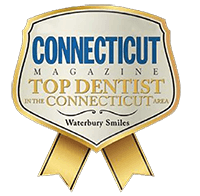How Biting Your Nails Can Impact Your Oral Health
August 27, 2021

Though the percentage of nail biters ranges from 20 to 33% during childhood, it rises sharply to 45% in adolescents. Nail biting is often viewed as just another bad habit, but it can actually have serious repercussions as far as your oral health is concerned. Learning how to resist the urge to bite your nails is a crucial step in keeping your teeth and gums in good working condition.
How Nail Biting Can Damage Your Mouth
Nail biting, also called onychophagia, increases your risk of cracking, chipping, breaking, or eroding tooth enamel. Biting your nails also makes them sharp or jagged which can lead to gum snagging and tearing. It also increases your risk for developing a condition called bruxism which is characterized by excessive tooth grinding or jaw clenching. Bruxism can lead to several other issues including headaches, tooth sensitivity, and facial pain. Dirt and germs that transfer from your fingernails to your mouth during nail biting can also lead to gingivitis. Also called gum disease, gingivitis causes your gums to become inflamed and can lead to tooth loss and other serious complications. Malocclusion, or tooth misalignment, can also occur.
How to Break the Habit
Though old-fashioned remedies for onychophagia like applying bitter-tasting products to your nails may work for some, these are generally less effective for those with persistent, compulsive tendencies. To avoid complications, follow these tips:
- Cutting your nails short and filing down ragged edges gives you less to bite
- Try making a fist, squeezing a stress ball, or chewing sugar-free gum to keep your mouth and hands busy
- Getting a nice manicure might discourage you from ruining your nails
- Wear gloves or mittens to hide your nails from view
- Identify and eliminate triggers. These could range from physical triggers such as hangnails to emotional triggers like stress or anxiety
- Gradually move away from nail biting one finger at a time with the end goal of stopping completely
- Ask your dentist for additional tips on how to break the habit
Nail biting is more than a bad habit. It can take a serious toll on your overall dental health. So, try replacing this tendency with something healthy or fun. Your mouth and nails will thank you for it!
About the Practice
The team at Waterbury Smiles has been providing quality, compassionate dental care to the Waterbury community since 1986. Their remarkable restorative, cosmetic, and preventive dental offerings are designed to give the whole family the pleasant oral healthcare experience they deserve. By using the latest in dental technology, their dedication to creating a fun, educational, and safe environment is apparent. To learn more about the correlation between nail biting and oral health, call us at (203) 575-9097 or visit our website.
No Comments
No comments yet.
RSS feed for comments on this post.
Sorry, the comment form is closed at this time.



